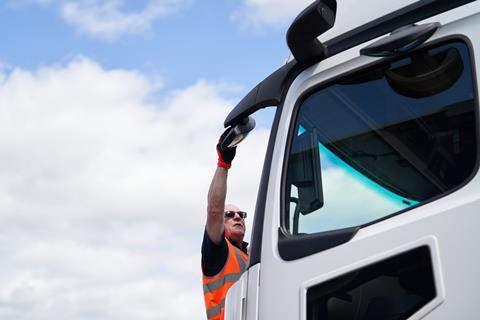In a new survey conducted by logistics operator Wincanton, more than half of UK businesses have expressed doubt about meeting their net-zero goals, with the logistics sector emerging as a critical battleground for carbon reduction efforts.
The research conducted on behalf of Wincanton, has uncovered that a significant 66% of UK organisations feel pressured to hit their net-zero targets, with an overwhelming 83% of respondents viewing logistics as pivotal to achieving these environmental goals.

However, the path to sustainable logistics is fraught with challenges. A staggering 54% of businesses believe they will struggle to meet their net-zero objectives, citing cost impacts and concerns about the viability of alternative fuel technologies as primary obstacles.
“Sustainability remains a high priority for UK businesses. But it’s clear they aren’t making enough headway when it comes to reducing emissions in their supply chain operations,” said Paul Durkin, Chief Customer and Innovation Officer at Wincanton. ”This is the result of the lack of viability and affordability of alternative fuel vehicles and ongoing cost pressures during a challenging economic period. We can see that a gap is emerging between their priorities and the action needed to reach net-zero.”
The cost conundrum
The survey revealed a complex relationship between sustainability efforts and financial considerations:
- 80% believe reducing CO2 emissions in their logistics fleet means an increase in costs
- 66% have had to deprioritise hitting these targets due to perceived cost pressures
- Encouragingly, 37% of respondents have seen cost reductions from tackling their CO2 emissions
Despite the potential for cost savings, the perception of increased expenses remains a significant barrier. Only 25% of respondents believe alternative fuel vehicles will be affordable in 4-6 years.
Knowledge gap and collaboration challenges
The study also highlighted a concerning lack of know-how in implementing sustainable practices:
- 59% want to reduce the environmental impact of their logistics fleet but simply don’t know how
- 42% of organisations admit they do not know how to further optimise their fleet
- As a result, 55% are not currently reducing emissions in their logistics fleet
While 65% of survey respondents agree that collaboration is key to the future success of the logistics industry, businesses report challenges in finding partners (28%) and lack of internal resources to manage collaboration projects (26%).
Looking to technology and government for solutions
Helen Flanagan, EyeQ Product Director at Wincanton, emphasised the role of technology in addressing these challenges: “More efficient use of existing capacity is key. Last year the government reported that almost a third of the total vehicle kilometres travelled by HGVs in the UK were empty. Put simply, too much fresh air is being moved around the UK, contributing to high emissions and high costs for businesses. Through technology, UK businesses can collaborate and optimise their fleets to minimise wasted capacity and shift the dial on sustainable logistics.”
Given the struggles faced by the industry, 84% of respondents expect the government to play a more significant role in supporting CO2 reduction efforts.
To read the Wincanton ’Share the road to sustainability’ report in full, click here.













